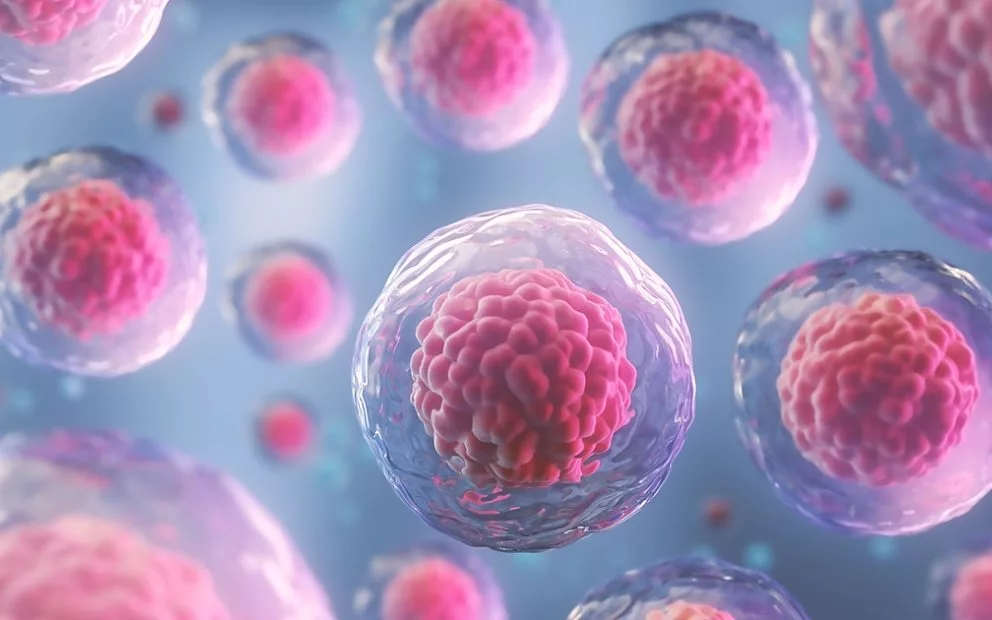SAHMRI researchers have developed ‘capCLIP’, an entirely new method of looking at how cells control the timing and targeting of protein synthesis, a process which, when it malfunctions, is critical to the development of serious diseases and disorders.
SAHMRI’s Cell Signalling and Gene Regulation research group, led by Professor Chris Proud and Senior Research Fellow Dr. Kirk Jensen, has been studying eIF4E, a small protein essential for ribosomes, the protein-making factories of the cell. The group has found it’s possible to chemically ‘tag’ eIF4E to attach it to messenger mRNA molecules, which contain the information used to make all the proteins within a cell.
The critical step in the making of a protein comes when the instructions contained in the mRNA are read by the ribosomes. The ribosome then manufactures the protein from a set of 20 different building blocks called amino acids.
“Using capCLIP, we can now identify the set of mRNAs that are associated with eIF4E, and thus we can ascertain exactly what proteins are being made by a cell at a given point in time or under a specific set of environmental conditions.”
The synthesis of new proteins occurs constantly in almost all living cells and links the cell’s genes and functions, responsible for almost every function of the cell.
“Thus, capCLIP thus provides us with a detailed ‘readout’ of cellular function. Secondly, the new method also allows us to directly study how a key cancer-causing pathway affects the function of eIF4E,” Prof Proud said.
It’s crucial that this process of protein synthesis is tightly controlled, as defects in its control are strongly linked to cancer and changes in eIF4E activity also play a key role in autism spectrum disorders, pain perception and circadian rhythms.
“We have studied eIF4E for many years, but our studies have been severely limited because until now we could not assess which mRNAs eIF4E was associated with, within cells in different settings,” Prof Proud.
“The new method can be broadly applied to wide range of studies, including to preclinical models of diseases such as cancer and neurological disorders.”
Because of this work, science has gained more detailed insight into the control of protein production in cells and taken a major step towards better understanding why serious diseases like cancer and disorders like autism spectrum disorder occur.
The research has been published in the journal Nucleic Acids Research.



